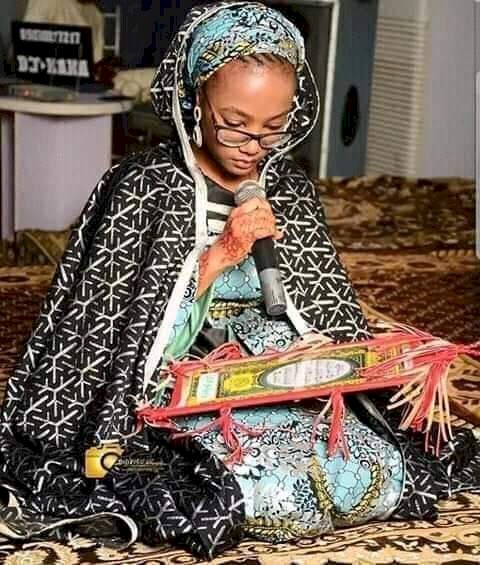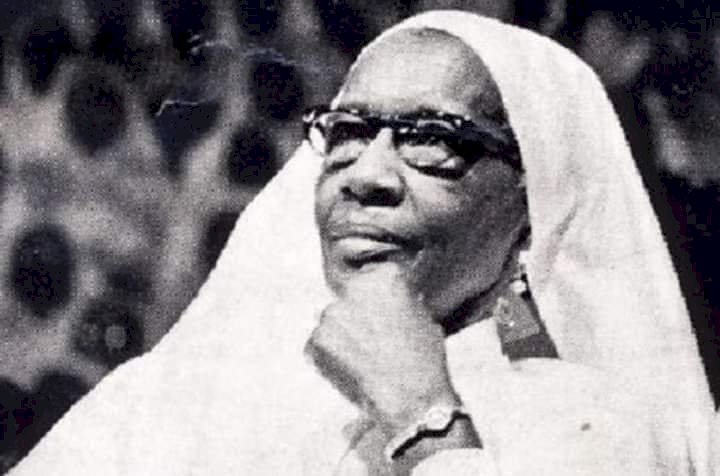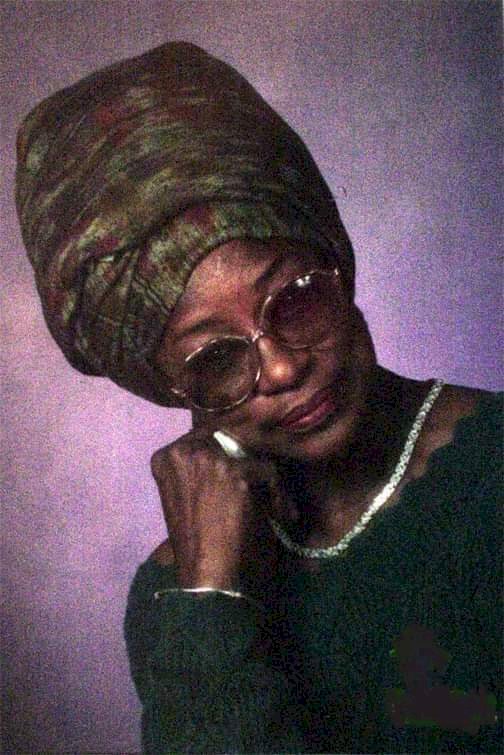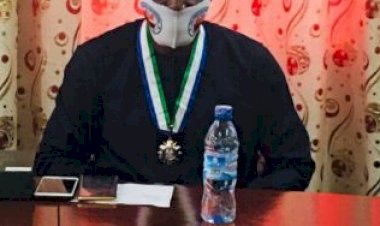THE MAJESTIC WOMEN OF THE FULANI TURUDBE` ETHNICITY

by Shaykh Muhammad Shareef bin Farid
No real social transformation can occur without the active participation of women. The transmission of identity construct and historical consciousness flows down through each generation by means of both the male and female genders.
As historians, when we go back several generations and examine the biographies of the women of the Turudbe` of one specific clerical family, known as Aal, it is easy to see that the identity traits which Shehu Uthman Dan Fodio inherited came by means of his female line. This Aal, was Ali ibn Muhammad Jubba ibn Muhammad Sanbu ibn Maasiran.

One particular female ancestor of note was the sage Taati, the daughter of Hamm ibn Aal ibn Muhammad Jubba ibn Muhammad Sanbu ibn Maasiran. She had memorized the Qur’an and was a an expert in jurisprudence and the esoteric sciences. According to Muhammad Bello, she was among those who had subjugated and had been given authority of an entire ‘tribe’ of Muslim djinn.1
This is significant, because the King/Prophet Solomon (Sulayman ibn Dawud), upon him be peace was given authority to subject Muslim as well as malevolent djinn, as is well known in the Quran and the Sunna. So here we have this quality of subduing invisible psychic forces granted to the descendants of Abraham manifesting in its fullness with a woman from the Turudbe` Fulani.
The story behind this gift was that one day she ordered her servant girl to ignite a fire in the house in order to warm some milk. However as soon as she lit the fire, it was mysteriously extinguished. The servant girl out of shire terror fled the kitchen and informed Taati what happened. Thus, Taati came herself in the kitchen lit the fire, and no sooner had it ignited, that it was mysteriously extinguished. She then left the kitchen and came back with the milk and said: “I am giving this milk as alms to whatever is in the house.” She then left and laid down to sleep in front of her compound.

Then an unknown woman came and woke her up saying: “I do not intend to frighten you, but I am a female djinn, to whom you have be kind to. I only extinguished the fire because my daughter gave birth to a child in your house. So it is a must that you be present at the naming ceremony of the child. We are located in so-and-so place.”
When the day of the naming celebration came Taati went to the place that was described to her. When she arrived suddenly innumerous host of djinn were unveiled to her in manifold forms. Then, the particular female djinn, whom she met in her home approached her and said: ‘Do not be frightened with what you see before you; because all of them have heard of the good deed you did for us.’ Then all the djinn gathered around her and said: “As long as you live in this world we will be required to show you love and are under a covenant to assist you. Whenever you desire our presence just simply call our names and we will make ourselves present to you, Allah willing, and we will take care of any of your needs.”2
Muhammad Bello went on to describe the actual words in Fulfulde` that the djinn taught her to say when she wanted to subjugate them for her needs. Taati bint Hamm ibn Aal ibn Muhammad Jubba not only had the ability to control invisible psychic forces but she was also learned in the exoteric and esoteric sciences of Islam which were disseminated from generation to generation from her great ancestor Musa Jokolli, to her grandfather, the learned sage Aal ibn Muhammad Jubba ibn Muhammad Sanbu ibn Maasiran ibn Ayyub ibn Buba Baba ibn Abu Bakr ibn Musa ibn Imam Dambuba who diffused this baraka to all his descendants.3
Among the Turudbe` Fulani, the women played a major role in primary education. Shehu Uthman Dan Fodio, himself was educated and reared by two well-known erudite women. The first was his mother, Hawwa, the daughter of Muhammad ibn Uthman ibn Hamm ibn `Aal ibn Jubba ibn Muhammad Sanbu ibn Maasiran. She was a direct descendent of the Prophet, may Allah bless him and grant him peace.4 She too had memorized the Quran and the fundamental books of jurisprudence. More significantly, Hawwa bint Muhammad, had inherited the esoteric sciences which Allah ta`ala granted the descendants of the House of the Prophet.
There was Inna Alfa the stepmother of the Shehu, being one of the wives of Fodio Muhammad. She was the daughter of a learned scholar named Malam Mudharagha and her mother was a renowned scholar named Jalle’, the daughter of the learned Faatu, the daughter of the renown erudite Malam Bi Sa`d. Thus, she too, was a scholar of significant status.

There was the sister of the Shehu, the learned Sawda bint Fodio Muhammad ibn Uthman ibn Saalih. She memorized the Quran, and had special mastery over the linguistic sciences, such grammar, verbal conjugation, poetry and eloquence. She was married to the amir of the scribes under the Shehu the learned, al-Mustafa ibn Abd’r-Rahman ibn Abu Bakr ibn Umar ibn Abd’r-Rahman ibn Zaynab bint Mughadhi ibn Baayi. She, like her husband, shared in the responsibility of the archiving of the texts and the production of rare and needed books by the scholars. Her mother was the learned Juda, the daughter of the learned Muhammad Dikku and his erudite wife Atti, the daughter of the jurist Muhammadan ibn Dadi bint Ghurdu.5
Among them was the paternal aunt of the Shehu, Inna Kebbi, the daughter of the learned Uthman ibn Saalih, who took the outward and inward sciences of Islam from her learned mother.. Her mother was the pious and ascetic, Maryum, the daughter of the famous jurist and teacher, Jibril ibn Hamm ibn Aal ibn Muhammad Jubba ibn Muhammad Sanbu ibn Maasiran. Inna Kebbi was a learned scholar who was responsible for teaching the women in her village under the direction of her husband, the erudite Muhammad Hajj ibn Ibrahim ibn Mane ibn Muhammad ibn Haaju bint Litti. She was the mother of eight children all who became scholars in their own right.6
Among them was the erudite and saintly wife of the Shehu, Maymuna bint Muhammad Hajj, who was the mother of the founder of the famous women’s college without walls, the sacred Yan Taru, Nana Asmau.
As for Nana Asmau bint Shehu, so much has been said about her, that there is little that I can add to the mountainous praise lavished on this pious scholar and dedicated social activist. However, her great grandson, my shaykh, Waziri Junayd ibn Muhammad al-Bukhari said about her in his Irf ‘r-Rayhaan:
“She was Asmau, the righteous sage, the ascetic worshipper, pious scholar and dedicated social activist, may Allah be pleased with her. She produced innumerous poetic works designed to give admonition and council. She also produced many poems in praise of the Prophet, may Allah bless him and grant him peace. She was persistent in commanding the good and forbidding evil, in encouraging the people to adhere to the shari`a and follow the sunna, maintain family ties, and adhere to noble character. She may Allah be pleased with her had memorized the whole of the Qur’an and was extremely patient with the evils of people. She possessed amazing virtue.”7
Among Nana Asmau’s many publications was poem which she dictated called in Fulfulde` Fitilaagu and in Hausa it is called Waka`r Ghiwaaya. She composed this poetic song first in Fulfulde` and then translated it herself into Hausa. These two compositions became renown throughout the Hausaland even to the present day. She composed them in the year 1281 hijri (1863 CE) during the time of the rule of her nephew, Amir’l-Mu’mineen Ahmad ibn Abu Bakr Atiqu ibn Shehu Uthman ibn Fuduye, and made its stanzas equal 134.
Her nephew, Shaykh Abd’l-Qaadir Dan Tafa, translated this work into Arabic and called it Mawsufat as-Sudan (The Description of the Lands of the Blacks). In this work, he credited his aunt and praised her saying:
“I will narrate in it what Asma’u put in poetic verse
Of hers composed in non-Arabic in which she dictated
A woman of noble attributes and the mother of dauntless heroes
An assessment of her by the universal judgment of the times as is well known
Where her fragrance defused among the Nujaba
And the People of Contentment numbered her among the Nuqaba.”8
Among the other scholarly productions of Nana Asmau were her Tabshir al-Ikhwan bi’t-Tawassul bi Suwar ‘l-Qur’an `Inda al-Khaaliq al-Manaan; as well as her Tanbeeh al-Ghaafileen, in which she discussed at length the barriers which stand between humanity and Paradise. She produced other works besides theses as well…She died in the year 1282 hijri (1864 CE)of the hijra at the age of 72.”
Among these Turudbe` women who inherited the identity construct of the ‘Children of Abraham’ was the learned and pious wife of the Shehu, A`ishata, Iyya Garka Ghabindu, the daughter of the above mentioned learned jurist Muhammad Sa`d ibn Abdullahi ibn Muhammad ibn Sa`d ibn Muhammad Ladan ibn Idris ibn Maasiran.9
Her grandson, the sage and mystic Abd’l-Qaadir ibn Mustafa, known as “Dan Tafa”, said about her in his Salwat al-Ahzaan in which he mentioned the elite among the sages and mystics surrounding the Shehu:
“Among them was the female spiritual master, our grandmother, A`ishata, the wife of Shehu Uthman and mother of my spiritual master, Muhammad Sanbu. She possessed an ample share of the traits of uprightness and spiritual excellence, and a well established precedence in the affair of spiritual realization and gnosis…She was reknown for her constant spiritual states and stations and had reached the highest levels in asceticism, uprightness, piety, and complete spiritual struggle and discipline. She was from among the `Ibad Allah as-Saaliheen and the obedient Khiyaar al-Umma.” She gave birth to eight children, all who became like her, learned sages of high spiritual ranks. Among them were the above mentioned, Muhammad Sa`d, Muhammad Sanbu, Muhammad al-Bukhari, Mu`allayidi, A`ishata, Aminatu, Juwayratu and the famous Khadijatu.10
This Khadijatu, the daughter of the Shehu from his above mentioned wife, A`ishata bint Muhammad Sa`d, “was from among the awliyya, and the righteous and humble ascetics. She was among the daughters of the Shehu who made the hijra with him from Degel. She was famous for her virtuous spiritual states, pleasing character, copious learning and magnificent comprehension of the Divine realities. She possessed a well established foot hold on many diverse sciences, and was from among those disciples of the Shehu who had been spiritually instructed to reach the Goal of direct knowledge of Allah ta`ala. She also produced many poems in the Fulfulde` language, among them was her famous poem on the ‘Signs of the Appearance of the Mahdi’; her poem of eulogy to her husband the erudite Mustafa ibn Muhammad at-Turudi, the father of the renown sage, Abd’l-Qaadir; her poem on ‘A Supplication for the Village of Wurno’, which Amir’l-Mu’mineen Muhammad Bello used to recite and himself arabized; her poems on the science of jurisprudence; filial piety; grammar; and others which cannot be enumerated.”11
Our spiritual master Waziri Junayd ibn Muhammad al-Bukhari, gave an excellent description of these many Turudbe` women who had inherited the identity construct and historical consciousness of this ancient ‘lost and found’ sprout from the Tree of Abraham:
“These were the women from among the servants of Allah
The women of uprightness, high spiritual states and asceticism
God fearing women who protected what should be hidden
Women of remembrance of Allah and who possessed excellent hearts
They were steeped in the study of the Qur’an always
And never feared the blame of anyone regarding Allah
Constantly listening to the sermons and admonitions
Of our Shehu, the possessor of Light and Awakening
Most of them we did not mention here
Rather we were content to mention only a few of them
As a means of taking blessings by means of them, then
Taking them as a means of mediation, O Allah answer our prayers!”12
In short, no social transformation can occur in any society without the active participation of learned and virtuous women. It is from our women that our children receive their most important traits of humanity. Shehu Uthman Dan Fodio, went our his way in educating women and even incurred the criticism of his critiques for the care he gave to educating women in the Quran, the Sunna and related Islamic sciences in the central Bilad as-Sudan.
His wives and daughters laid the foundation of what was to become the famous women’s zawiya or college without walls – the YAN TARU.
This erudite circle of women made it possible for the Muslim women of northern Nigeria to be some of the most educated women in the whole of Africa.
As the saying goes: “You educate a man, you educate an individual. You educate a woman, you educate an entire nation.”

Extracted from The Lost & Found Children of Abraham in Africa & the American Diaspora:
https://www.academia.edu/8092379/The_Lost_and_Found_Children_of_Abraham_In_Africa_and_the_American_Diaspora
FOOTNOTES:
1. Muhammad Bello, Majmu` ‘n-Nasab, digitized manuscript in authors’ possession, f 46.
2. Ibid, ff 46-48.
3. Waziri Junayd, Dabt’l-Multaqataat Minna’l-Akhbaar ‘l-Muftaraqaat fi’l-Mu`alifaat, f. 13.
4. Ibid, f 12.
5. Ibid, f 28.
6. Ibid, f 14.
7. Junayd ibn Muhammad al-Bukhari, Irf ‘r-Rayhaan Fi ‘t-Tabarruk Bi Dhikr ‘s-Shaykh Uthmaan, xerox copy of manuscript in possession of author, ff 55-60.
8. Ibid
9. Muhammad Bello, Majmu ‘n-Nasab, f 7.
10. Abd’l-Qaadir ibn Mustafa, Salwat al-Ahzaan Fi Dhikr Ba`d’l-Khawass Min Ahl’z-Zamaan, digitized manuscript in possess of author, f 8. See also Bello’s Majmu`n-Nasab, f 7.
11. Junayd ibn Muhammad al-Bukhari, Irf ‘r-Rayhaan, ffs 50-51
12. Junayd ibn Muhammad al-Bukhari, Qasidat ‘t-Tawassul bi Awliyya Allah ta`ala Min ‘n-Nisaa ‘l-Kumal, xerox copy of manuscript with the author, f.10
www.siiasi.org

















































